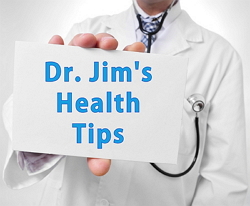
The first vitamin discovered was B1 – thiamine. In 1987, by Dutch physician Christian Eijkman while studying a peculiar disease in the Dutch West Indies – Beriberi.
B vitamins have a great deal to do with your metabolism and cell growth. B12 and B9 are frequently deficient in seniors.
Below is a list of the B vitamins – what they do for your body, the best food sources to make sure you get your Bs and how much you need per day
Vitamin B1 – (Thiamine) Helps the body convert carbohydrates and fat into energy; essential for normal growth and development; helps to maintain proper functioning of the heart and the nervous and digestive systems.
Foods – Green peas, spinach, liver, beef, pork, navy beans, pinto beans, soybeans, nuts, bananas, whole grain and enriched cereals, and breads. 1.4 mg/day
Vitamin B2 – (Riboflavin) Required by the body for the metabolism of fats, carbohydrates, and proteins; helps with cellular processes.
Foods – Asparagus, okra, chard, almonds, leafy greens, cottage cheese, milk, yogurt, meat, eggs, and fish. 1.2 mg/day
Vitamin B3 – (Niacin) Necessary for energy metabolism in cells; DNA repair; produces several sex and stress-related hormones that are produced by the adrenal gland; helps remove toxins and chemicals from the body.
Foods – Chicken, beef, tuna, salmon, milk, eggs, broccoli, tomatoes, carrots, dates, sweet potatoes, asparagus, avocados, nuts, whole grains, beans, mushrooms, nutritional yeast. 14 mg/day
Vitamin B5 – (Pantothenic acid) Required to sustain life; is critical in the metabolism of fats, carbohydrates, and proteins.
Foods – Whole-grain cereals, beans, eggs, meat, some energy drinks. 5 mg/day
Vitamin B6 – (Pyridoxine and Pyridoxamine) Help enzymes do their job in the body; helps the nervous and immune systems function properly; necessary for overall good health.
Foods – Nuts, liver, chicken, fish, green beans, salad greens, wheat germ, nutritional yeast, sea vegetables, and bananas. 1.3 mg/day
Vitamin B7 – (Biotin or Vitamin H) Used in cell growth; the production of fatty acid; metabolism of fat; plays a role in the Krebs Cycle in which energy is released from food; helps with the transfer of carbon dioxide; helps maintain a steady blood sugar level; found in many cosmetic products to help with your skin and hair.
Foods – Beans, nutritional yeast, cauliflower, chocolate, egg yolks, fish, liver, meat, molasses, dairy products, nuts, oatmeal, oysters, peanut butter, bananas, soy products, mushrooms, wheat germ, and whole grains. 30 mcg/day
Vitamin B9 – (Folic acid) Helps the body make healthy new cells; taken before and during pregnancy can help prevent major birth defects of the baby’s brain and spine.
Foods – Leafy greens such as spinach, dried beans and peas, sunflower seeds, oranges, asparagus, broccoli, liver, enriched cereal. 400 mcg/day
Vitamin B12 – (Cobalamin) Necessary for the synthesis of red blood cells, the maintenance of the nervous system, and the growth and development of children.
Foods – Animal products such as meat, eggs, dairy products, nutritional yeast, and fortified cereals. 6 mcg/day

